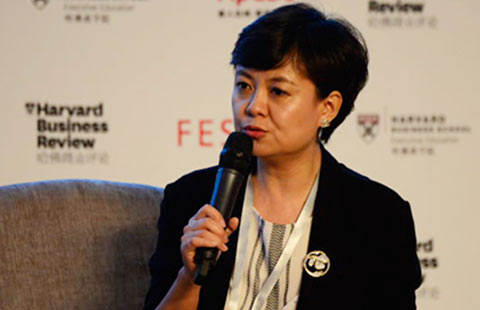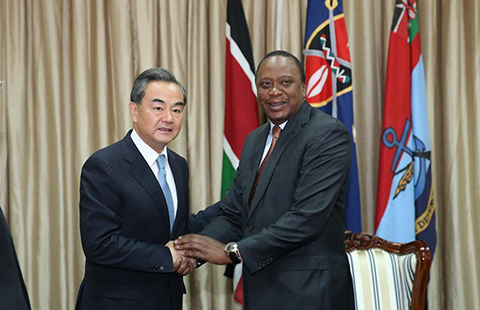UK tech companies compete to join China's startup boom
By Angus McNeice in London ( chinadaily.com.cn ) Updated: 2016-08-12 01:08:54
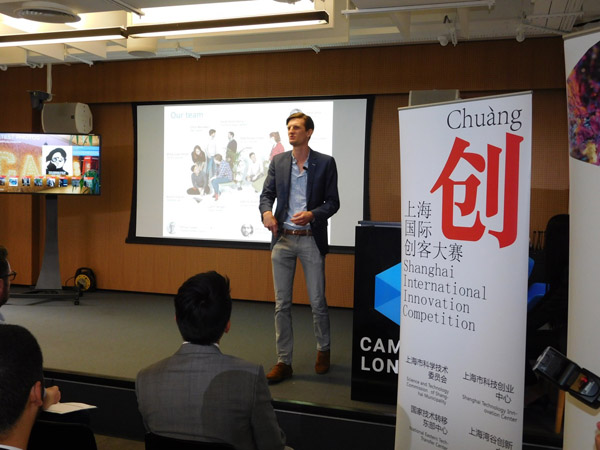 |
|
Toby Basey-Fisher, CEO of EVA Diagnostics, presents the winning pitch at the Shanghai International Innovation Competition-UK in London, Aug 11, 2016. [Photo by Angus McNeice/China Daily] |
British startups gathered at the Google Campus in London on Thursday and competed head to head for a chance to fly to Shanghai and join China's growing innovation industry.
At the Shanghai International Innovation Competition-UK, eight young companies pitched to a panel of tech experts who quizzed them on their products and their viability for entry into the Chinese market. The competition plays into China's plans to transform Shanghai into a startup hub to rival those in Europe and the United States.
"Shanghai wants to become a leading innovation center — like Silicon Valley — in China. London plays that role in Europe, so we are connecting the two cities," says John Zai, CEO of Cocoon Networks, a company that bridges the Chinese and European startup communities that hosted the contest.
"The people who joined this competition see the future — they see which market will be the biggest market, the market that gives them the most potential to expand, and that's China."
EVA Diagnostics, presenting their AnemiPoint device that performs at-home blood tests, took first prize. They will now fly to China's Shanghai Bay Valley in September and take part in the competition's global finals against local startups as well as fledgling tech companies from Singapore and Korea. The overall winner will receive a cash prize, investment resources and three months free working space at a tech incubator in China.
"We're delighted and honored to have the opportunity to go out to China and start building partnerships and engage in the investment community out there," said Toby Basey-Fisher, CEO of EVA Diagnostics. "We see China as a very big growth opportunity for us."
The Chinese government identified entrepreneurship and innovation as key drivers for economic diversification in a 2015 development report.
"Mass entrepreneurship and innovation in itself is a major reform endeavor," Chinese Premier Li Keqiang said last March.
The government has established over 1,600 incubators for startups across the nation, and is armed with the world's biggest war chest of venture funds. Through state and enterprise funding, about $231 billion was raised in 2015 alone, and by April 2016 almost $340 billion was available for tech investment, according to consultancy Zero2IPO Group.
Jeffrey Tijssen, co-chair of the China Working Group at Tech London Advocates and one of the judges on the panel, says that companies like Cocoon act as important conduits for startups in Europe wishing to exploit the Chinese market.
"A lot of startups look at China as the next big frontier," says Tijssen.
"China is moving in the right direction but quite a few startups underestimate how difficult it can be to be successful in China. You've seen it recently with a lot of big technology companies. Whether it's a Google or an Uber, they can spend an absolute fortune and really struggle. From a startup's perspective you need to have an understanding of how to do business in China — you can read a lot, you can speak to lots of people, but you have to go and visit those markets. This is where Cocoon comes in, they are doing a great job to make it easier for startups that are based in the UK to set up a company in China."
Along with EVA Diagnostics, the startups that made the competition's shortlist include: Combat Medical that makes cancer-fighting thermotherapy devices; Cupris, whose clinical imaging smartphone software allows patients to remotely share diagnostic information with healthcare professionals; FreshCheck whose adhesive stickers indicate if food products have spoiled; Lightvert, that makes projector and reflector technology allowing for large scale advertising displays; Podaris that makes in-browser urban planning software; SayYeah whose technology allows users to video chat while live streaming TV online; and Shindo that creates investment and trading software.
Only EVA Diagnostics will go to Shanghai.
To contact the reporter: angus@mail.chinadailyuk.com
|
|
|
|
|
|
|
|
Features
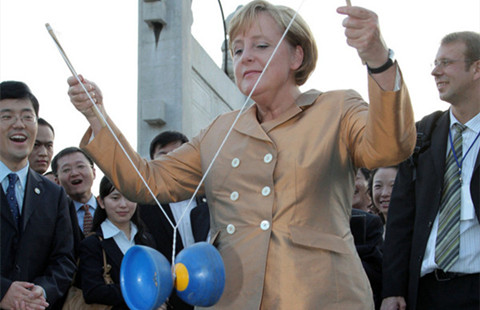 Merkel's lighthearted moments in China
Merkel's lighthearted moments in China 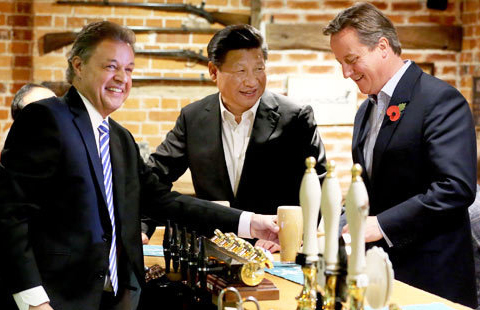 British pub becomes tourist attraction after Xi's visit
British pub becomes tourist attraction after Xi's visit
European Weekly
 We will not give up search, Li vows
We will not give up search, Li vows
International hunt for missing airliner continues after fruitless six-day search




